Saturday 13th March 2021
Did anyone notice any particular story dominating media headlines this week, or did I miss something?
The world of buses and trains has also been a bit quieter on the news front this week although expanded bus services and some extra rail journeys to ensure school children could return to school on Monday received some coverage as the implementation of the “irreversible road map” began and many areas reimposed the pre 09:30 Monday to Friday restriction on concessionary passes on bus networks. Returning school children helped boost passenger journeys on buses from last week’s 31% to 38% on Monday of this week with TfL buses increasing from 36% to 43%, the Underground now on 22% (from 20%) and National Rail now up to 19% from around 13-15%. All percentages relate to pre-Covid ‘norms’.
More news of returnees came on Monday with the Oxford Tube announcing it will back on the road from Monday 29th March to coincide with the road map’s ‘Stay At Home’ instruction ending. A 20 minute frequency on Monday to Friday with extra peak hour expresses via Baker Street is complimented by a 12-15 daytime frequency at weekends.

Also returning on Monday 29th March will be Thames Clipper’s (aka Uber Boat) service along the River Thames running a special timetable on route RB1 (between Woolwich and Battersea) with a 20 minute frequency (dropping to 40 minutely in the off peak east of North Greenwich). The loss of the tourist market is surely going to be a blow for this business.
News this week of more exciting bus service developments from Hulley’s of Baslow. Their suspended route X70 (Chesterfield to Bakewell) is reintroduced from 12th April with alternate journeys continuing from Bakewell to Matlock (as service 172) and from 17th May the other journeys will be extended from Bakewell to Buxton. Good to hear the ‘new from last autumn’ Snake X57 (Sheffield to Manchester), will be continuing and what’s more, with a route extension to serve Manchester Airport from 17th May. It’s one adventurous announcement after another at Hulley’s.
However, competition from the Hope Valley rail line between Sheffield and Manchester will become more intense in due course after the DfT this week announced a £137 million upgrade of the line to provide passing places allowing fast trains to pass stoppers and freight trains and increase service levels. The work will include a second platform at Dore & Totley station and avoid the single track bottleneck at that point. Work is expected to begin in 2022 and be completed in 2023, so plenty of time for the X57 to establish itself.
Transdev Blazefield owned Burnley Bus Company announced plans this week for “a vastly improved bus network connecting Burnley Pendle and the Ribble Valley” following tender wins from Lancashire County Council. A brand new £2.75 million fleet of 18 Mellor bodied Mercedes midibuses “stylishly appointed inside and out” will operate an improved network of nine routes branded “Ribble Country” including increased timetables and new Sunday buses to many areas beginning from 2nd May.

It’s great to see the return of a once mighty bus company name to this area.
The single track Heart of Wales railway line through Llangennech (north of Llanelli) reopened on Monday having been closed since last August’s freight train derailment when a large quantity of oil spilled from freight wagons into the ground causing Network Rail to institute one of the largest clean up operations for many years. 12,000 cubic metres of diesel contaminated soil around the site has been replaced.
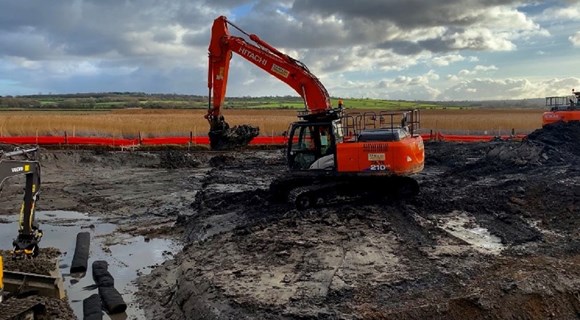
The Heart of Wales line is currently only open as far north as Llanwrtyd Wells, albeit with only two return journeys a day (to/from Carmarthen) as engineering work is taking place between Llanwrtyd Wells and Knighton for two weeks until next Saturday. Replacement coaches are operating between Llanwrtyd Wells and Craven Arms in both directions. I studied the TfW website to try and find a timetable showing the two trains and replacement coaches a day that are running, but gave up looking. Not sure how passengers are supposed to find out.
The DfT announced on Thursday it’s agreed further extensions to the Emergency Measures Agreements with c2c, South Western Railway and TransPennine Express from 1 April to the end of May “as discussions continue over the ending of franchise agreements and a move to directly-awarded National Rail Contracts”. I seem to remember the Minister telling the Transport Select Committee last year it’ll be a singe to negotiate the new Direct Contracts as the DfT ‘holds all the cards’.
Talking of funding extensions, still no word on TfL’s bail out beyond the looming 31st March deadline, which not surprisingly came up as a discussion point at the London Assembly’s Transport Committee on Monday afternoon.
It was the last meeting before the upcoming Mayoral election with Deputy Mayor for Transport Heidi Alexander and TfL’s Commissioner of Transport Andy Byford answering questions from Assembly Members. The main discussion centred around “the progress of the Mayor’s transport strategy and challenges for its delivery following Covid 19”. TfL’s 70% drop in fare revenue over the last year – almost £3 billion – was perhaps one of the most notable challenges Heidi Alexander highlighted in her opening remarks “particularly for an organisation that normally spends £10 billion a year, causing great uncertainty and anxiety” adding her gratitude to Government for stepping in with funding adding a political point: “I am disappointed about how needlessly political the funding negotiations have been”.
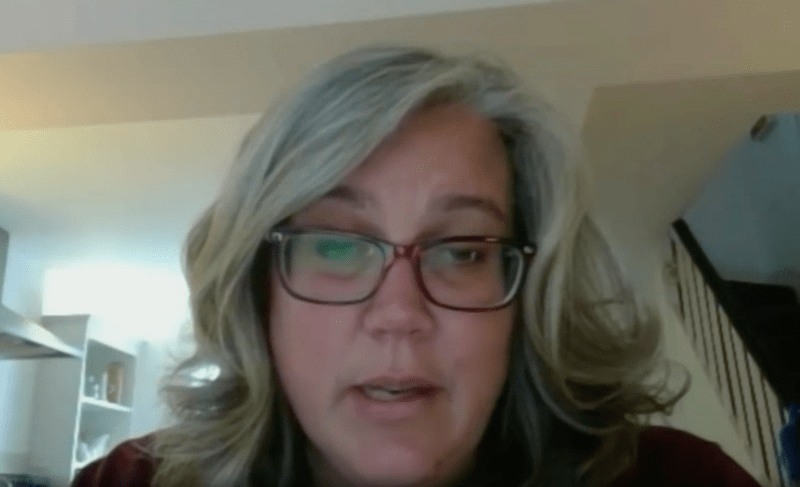
Andy Byford told the meeting his “first surreal nine months with TfL” have seen two overriding objectives; firstly to achieve passenger journey recovery from Covid 19 and secondly to get Crossrail open. On recovery he told the meeting TfL is still on track to met the Mayor’s “dream” of having “80% of journeys on public transport, cycling or walking by 2041” (not sure how on earth he can be confident of something happening 20 years from now, when there’s currently no certainty of funding in 20 days time), but as a result of Covid there will be changes … “we’ve modelled various scenarios, we know we won’t see an immediate mass return to the days of old of people travelling cheek-by-jowl on the Central or Northern Lines; I think those days are probably gone. We have modelled what we think is a realistic expectation and a path back to financial self sustainability by 2023/24 and in the interim we will need some ongoing revenue support until we reach that position and we’ll need devolved powers to plug the gap of ridership and we need to wean ourselves off a dangerous reliance – 72% – of farebox revenue”. I’ve heard Andy make that latter point before, but I’m still no clearer what other revenue streams he envisages to reduce that 72% reliance.
On the Government funding looming deadline Andy Byford admitted “clouds on the horizon because the financial situation is pretty scary; we’re in the second of our financial bail outs; our funding expires on 31st March and we’re pushing very hard to get as longer term a deal as we can. It may not come straight away but certainly what I want to achieve is a long term deal which will be good for the Government, good for London and good for the Country”. Later adding “we cannot continue with these six month hand to mouth deals”. Realistically, I reckon that’s all TfL are going to get.
Heidi Alexander reminded the Assembly TfL’s financial sustainability plan by 2023/24 hinges on either keeping VED for London based vehicles or implementing a £3.50 Greater London boundary charge for non residents, neither of which I can see being acceptable to Government. Negotiations continue with 18 days to go – described by Heidi Alexander as “the calm before the storm” with the next couple of weeks “crunch time” and there’s “a considerable amount of water to go under the bridge still”. Andy Byford while hoping for a longer term deal, or even for the whole of 2021/22 admitted this now seemed unlikely “we’re probably going to get a shorter deal than that” pointing out it makes letting contracts extremely difficult. On capital funding Andy Byford said TfL have made the case for £1.6 billion every year through to 2030. Good luck with that.
Andy Byford was also asked what transport projects in the Mayor’s Transport Strategy have been delayed or cancelled and after extolling the projects that are still underway (Crossrail, the Northern Line Battersea extension, the Barking Riverside extension, Bank station upgrade and those new Piccadilly Line trains) admitted what we all knew already that both Crossrail 2 and the Bakerloo Line Lewisham extension despite having “good business cases” are “on hold” with the latter’s route safeguarded. New bus route 456 didn’t get a mention, but as I covered last time, has been safeguarded and starts today, adding at least a quarter of a million to the annual deficit ( I reckon as a minimum).
Andy Byford also told the Committee Thameslink deserves to be on the Tube map and reassure passengers and “as far as I am concerned it’s on and it’s not coming off”. No word on a bus map though (yes, I know, I’ve got to let that one go and move on.)
Not mentioned in Andy Byford’s project postponement list is the aspiration for an outer West London Orbital making use of existing rail lines (including freight only ones) with passenger services between Hounslow and West Hampstead/Hendon on the Midland Main Line via Acton Central and a new station at Old Oak Common. It looks like this plan is now many years away, which is a shame, as other Overground orbital routes have seen significant growth and success and this project could be realised at relatively modest costs (as these things go) and be a useful alternative to the congested North Circular Road.
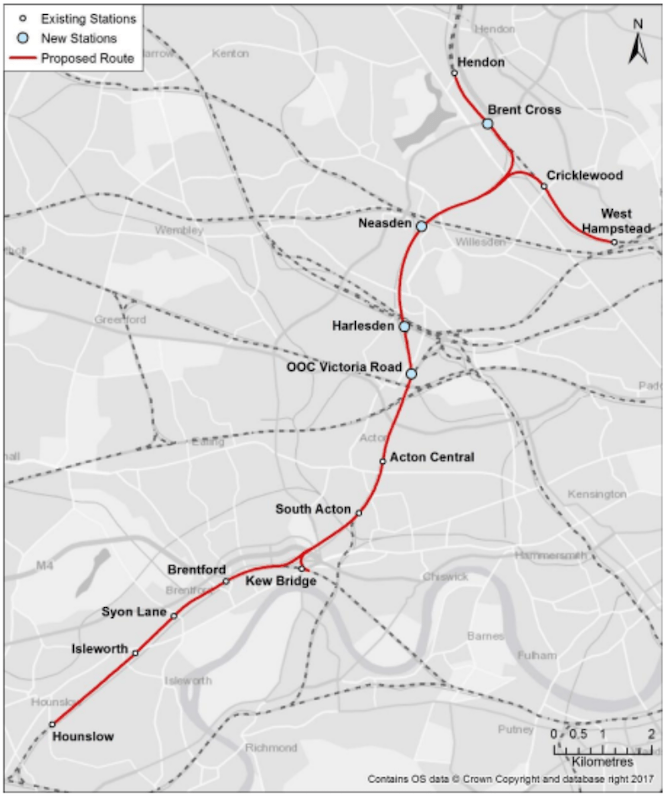
Monday also brought a flurry of stories online and on social media to mark International Women’s Day including a report launched by Women in Transport on ‘Gender Perceptions & Experiences Working in Transport’. The report is based on a survey of 567 transport professionals showing 69% of women felt the transport industry has a macho culture and 70% also perceive the industry has an image problem. “Alarmingly, 70% of the women surveyed said they had experienced discriminatory behaviour or language (this included derogatory or sexist remarks, jokes or statements targeted at them). The survey highlighted statistically significant differences in women’s and men’s perceptions of gender issues while working in transport, with more women feeling they had experienced discriminatory behaviour than men feeling they had witnessed it.”
The report makes recommendations for Government and the transport industry to take forward, including profiling and celebrating the diverse range of people within the transport sector who are helping the UK to “build back better”; and “embedding flexible working policies post-Covid-19”.
Another report issued this week was Sir Peter Hendy’s Interim Report on Union Connectivity.

This hit the headlines for two reasons, the continued media coverage of the bonkers idea of a bridge or tunnel between Scotland and Northern Ireland – and I see in the report Sir Peter has neatly delegated the controversy: “I have asked two experts, Professor Douglas Oakervee, CBE, and Professor Gordon Masterton, OBE, to lead a discrete piece of work, using engineering consultants, to assess the feasibility of such a link, and an outline cost and timescale for the link and the associated works needed” – and secondly the report includes the idea of reviewing Air Passenger Duty for internal flights which came up in stakeholder feedback: “its imposition on both legs of domestic flights was widely raised as an economic barrier, particularly in Scotland and Northern Ireland”. Stand by for arguments over unnecessarily encouraging air travel with its high carbon footprint, albeit the report points out for journeys from Scotland to the south of England, air is by far the quickest mode, never mind connections to and from Northern Ireland.
Indeed, the Rail Delivery Group (RDG) were straight in there with Director General Andy Bagnall stating “rather than considering a cut to air passenger duty in isolation, government should ensure there is a level tax playing field across cars, planes and trains with each paying according to the environmental impact they have”. Hmph, I wonder if RDG members First Group and the Go-Ahead Group would want to add “and buses” into that comment too – bearing in mind buses incur fuel duty on diesel whereas trains don’t.
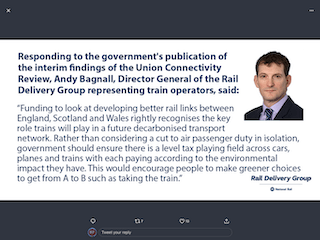
Sir Peter’s Interim report makes for an interesting read including some lovely maps showing road, rail and air connections and passenger flows between the four nations.
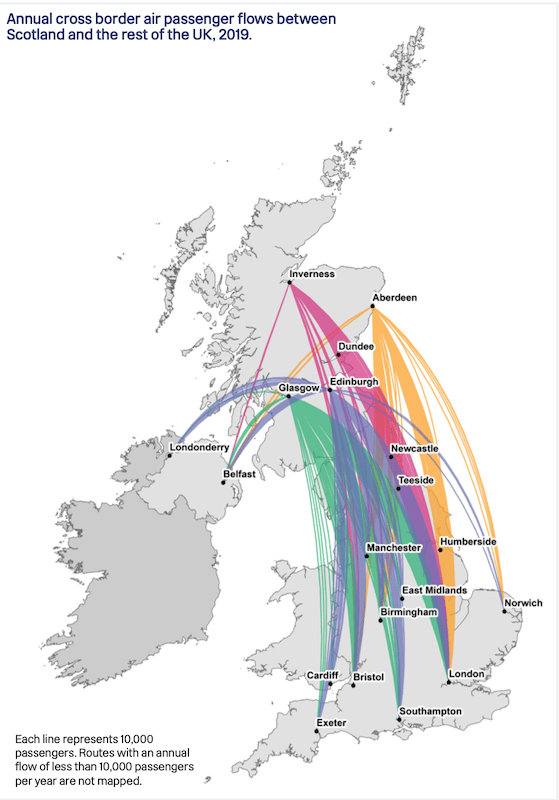
Sir Peter’s final report will be published this summer, and it’s noteworthy he was reappointed as Network rail Chairman for a further two years this week too.
The coach sector and Eurostar are still both plugging away at trying to get funding out of Government. A shout out to Greg Smith MP for Buckingham who raised the matter in the House of Commons on Tuesday asking Chancellor Sunak in Treasury Questions to look again at how the coach industry can be supported, while on Monday Grant Shapps wrote to the European Parliament confirming the UK Government recognises Eurostar services “provide major benefits for UK citizens and businesses in terms of the connections it provides, the fact it is an environmentally friendly link to our European neighbours, and the circa 3,000 UK jobs both directly and indirectly in the UK”. But still no funding but “the Government is keenly aware of the challenges facing Eurostar and of its important to the UK”. So that’s alright then.

GTR found a novel use for one of its spare Class 313 trains this week. Stabled in platform 8 at Brighton Station, its been given a sanitised makeover and a ‘theatre box-office’ style screen inside one of the carriage doors to provide a coronavirus testing centre where staff can receive twice-weekly rapid lateral flow tests. GTR’s “Head of Safety and Health” (note the subtle change to his job title’s word order) Mark Whitley said “it will help prevent workplace outbreaks and give our staff and passengers added reassurance”.

Which is all good, and luckily I spotted the news story on Wednesday so am duly reassured. Let’s hope there aren’t too many false positive results, leading to cancelled trains with staff sent home to isolate and also reassured staff will be more visible on the trains.

Work continued immediately outside Kings Cross station this week to relay the tracks to platforms 0 to 6 in readiness for the opening of the eastern bore of Gasworks Tunnel and with more amazing aerial photographs circulating on social media.
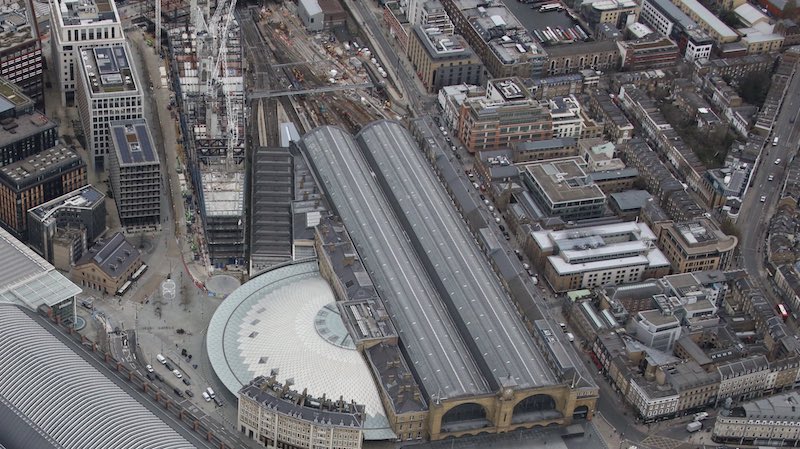
It’s fortuitous passenger journeys are so low during this period of disruption with only a limited rail service operating from platforms 8 to 11 while this work continues.
An update on plans for the Okehampton to Exeter train mentioned in last week’s round up thanks to feedback from Tom Baxter a stalwart of the Dartmoor Railway Supporters’ Association (DRSA). Tom explains the service won’t be ready to start in May as track has to be relaid first with “a considerable stack of concrete sleepers in the yard at Okehampton being a glowing testament to that”. News from Network Rail and GWR on a start date is expected in due course. Meanwhile Tom also gave interesting background to the Dartmoor Railway CIC which went bust.
This CIC had “an eventual American parent in Chicago. Hence they ran such events as Polar Express, Train to Christmas Town etc. Heritage services to Meldon Viaduct were staffed by DRSA volunteers. The very much still alive survivor is Dartmoor Railway Supporters Association (DRSA) who fully support the Exeter service and are currently working closely with Network Rail and Great Western Railway towards the Exeter service reopening. Also exploring the possibilities of restoring a heritage railway service from Okehampton to Meldon Viaduct. Okehampton will remain a heritage destination with all committed to retaining the current heritage ambience. DRSA will be reopening the station museum in due course and its railway shop. Best to keep an eye on the DRSA website for details of that www.dartmoor-railway-sa.org. The Southern Railway in the west lives on!” Many thanks Tom for taking the trouble to pass this on and good luck with getting the heritage service back up and running.
Feedback also from Ross Newman at Ensignbus this week who pointed out Delanie aren’t the only independently owned bus company proudly investing in brand new ’21 plate’ buses and sending me a photo of Ensign’s latest StreetDeck now in service. Very smart.
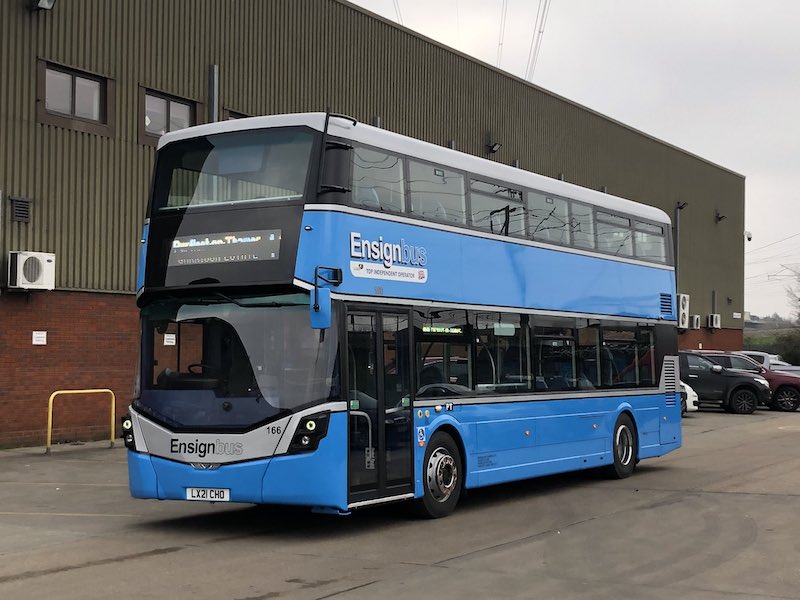
Despite this it wasn’t a surprise to hear the Society of Motor Manufacturers report new bus and coach registrations fell 32% in 2020 to 3,996 vehicles, the lowest total since records began.
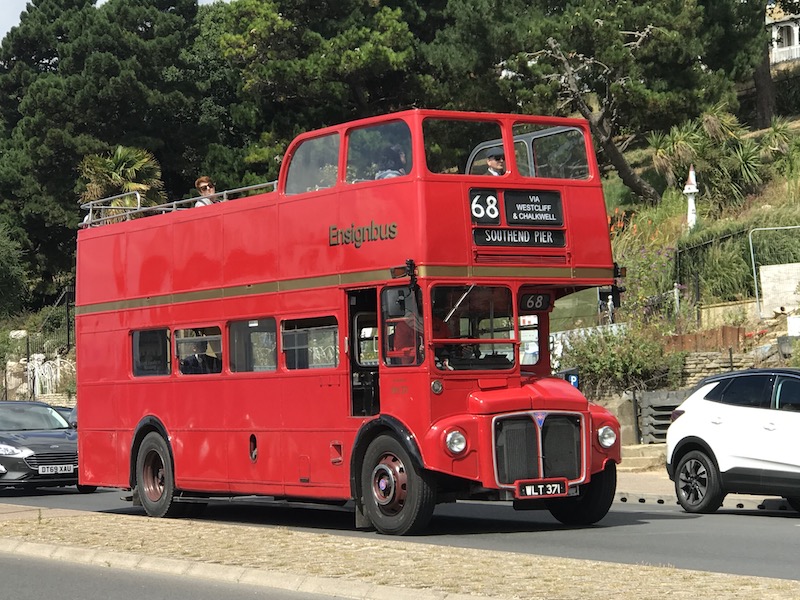
Back to Ensign and news plans are well advanced for a return of the popular route 68 seafront service in Southend this summer. Something else to look forward to.
An interesting development from Go North East – reuniting passengers with lost property left on buses has just got easier with the involvement of specialist software provided by a company called notlost (“reassure your customers, save time and money and return more items of lost property with our lost and found software”), an arrangement already in use at the Oxford Bus Company. The software uses photo recognition of lost property and makes suggested matches in response to customer online enquiries “all on a secure digital platform with improved controls and visibility”.

More Demand Responsive Transport news this week with West Midlands Combined Authority joining the app based craze in association with the University of Warwick. Mayor Andy Street’s news release was full of the usual buzzwords“convenience of a taxi”, “virtual bus stop”, “where you want it and at the right time”, “multiple riders to seamlessly share” “self-sustaining commercial service” …. what?! Hey Andy, delete that last one, it’ll never be that. Back on track, it’s apparently “part of the Future Mobility Showcase to pilot innovative transport modes and technology to reduce private car use” – yes, that’s much more like the usual load of bo**ocks to describe it.
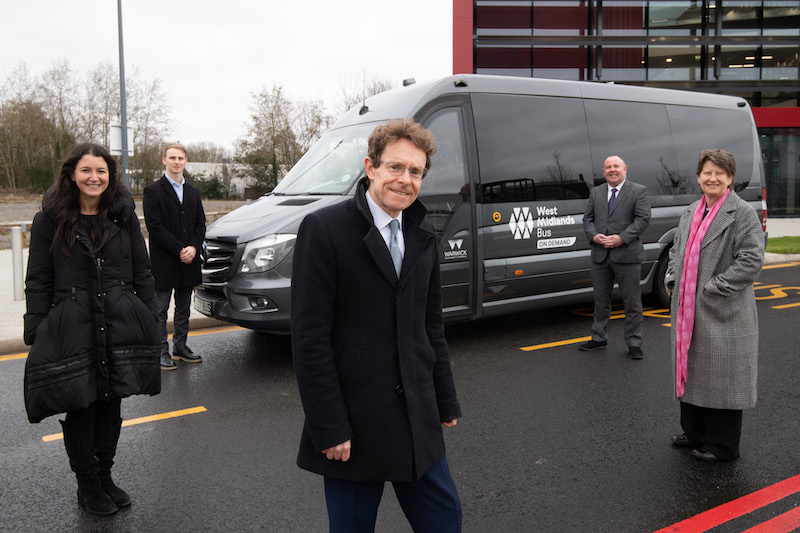
Andy continued “we are piloting these new services for those commuting between the University of Warwick campuses – but if successful and sustainable we will look at expanding it to other areas across the West Midlands”. People of the West Midlands well used to very reasonably priced mass transport links at high frequencies on National Express West Midlands bus network have no fear, your bus will still be there for you. This latest DRT set up is another Via production (a “leading public mobility company”) and CoachScanner (“our network of over 3,000 UK coach operators means you can easily find your perfect match. Let us know your trip details and we’ll be in touch…”) with funding from TfWM and the university. It starts next month.
You can tell Mayoral elections are looming with all these announcements before ‘purdah’ begins as on Thursday Mayor Rees in Bristol “outlined more details of a mass transit system Linking Bristol, Bath, South Gloucestershire and North Somerset with” …. wait for it ….. “a network of underground…” (yes you read that right) “…and overground railway lines which could be built in the next 10 to 15 years”.
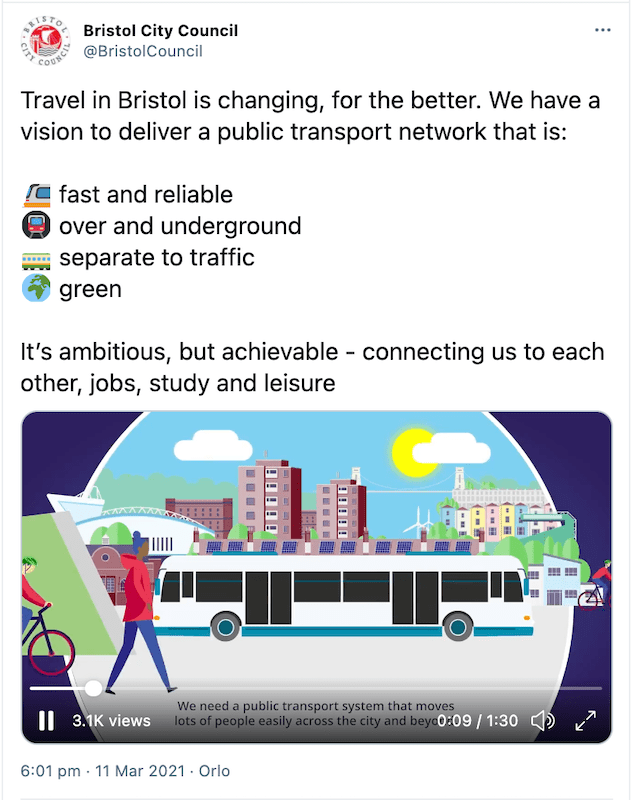
Good luck with getting that underground line completed in ten years!
More good news this week is a ‘date in the diary’ for Imberbus after it’s cancellation in 2020. The organisers are hoping to go ahead this year on Saturday 21st August. Not so good news is the cancellation of the Alton Bus Rally planned for 18th July and the “postponement” of the South East Bus Festival originally optimistically planned for 11th April.
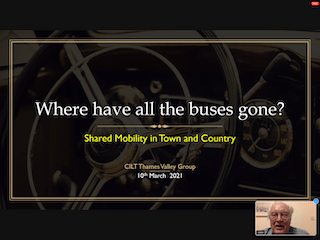
Finally for this week, another interesting Chartered Institute of Logistics and Transport (CILT) virtual meeting from the Thames Valley branch took place on Wednesday evening when John Carr gave a presentation entitled “Where have all the buses gone” with particular emphasis on rural buses and drawing on his extensive knowledge and experience from an illustrious transport planning career including spells at Strathclyde PTE and West Yorkshire PTE and a long term active member of CILT including a Board Member. In a fascinating and somewhat nostalgic presentation John highlighted a whole host of past initiatives including DalesBus, Dial-A-Ride, Postbuses and the Settle Carlisle railway from which lessons can be learned for today of why some things work and others don’t.

Martijn Gilbert (Go North East’s managing director) and Cathy Knight (North Yorkshire County Council’s Commercial Sector Service Development Manager) added their pertinent observations after John’s presentation based on their extensive experiences. It was an interesting evening.
And with now just two more weeks until we can all get out and about again, there’s every indication next week will see a report recommending Mayor Burnham introduces bus franchising to Manchester and we’ll see the publication of the long awaited National Bus Strategy. I can hardly contain my excitement.
Roger French
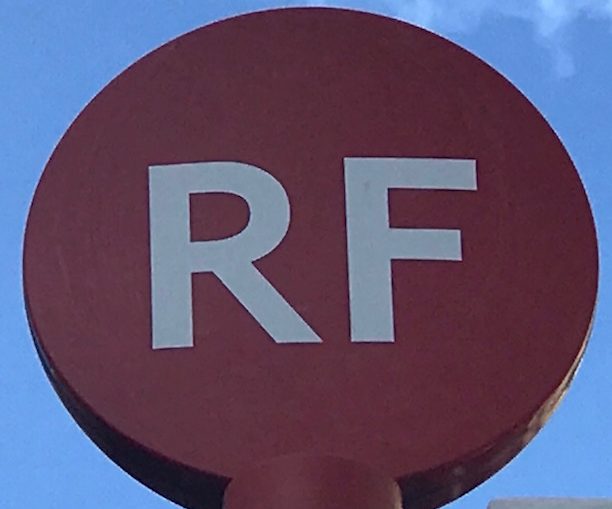
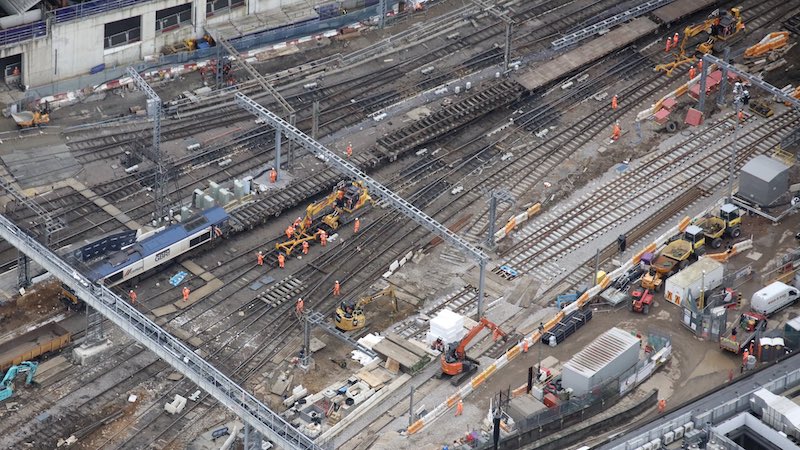
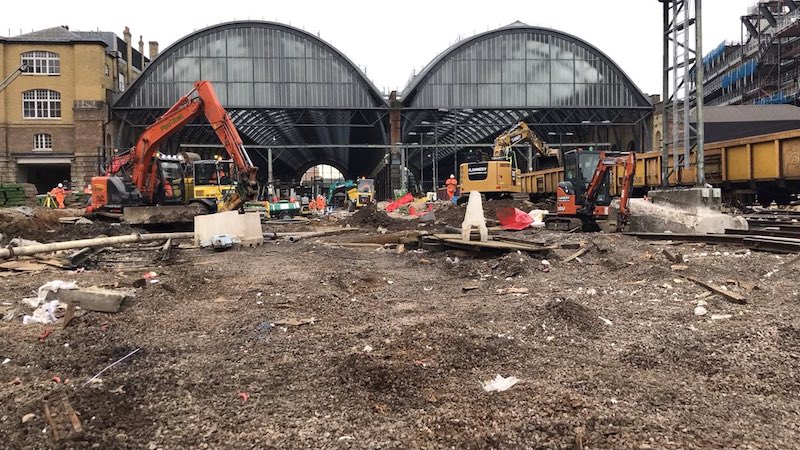
A dangerous reliance on farebox revenue? Different world
Thanks Roger
LikeLike
News from north of the Border. In a 2021-2022 budget settlement with the Greens this week, the SNP agreed to extend free bus travel for young people in Scotland up to 22 years of age. It had already been planned to introduce free travel for those up to age 19.
LikeLike
Many thanks John. Saw that, but forgot to include it!
LikeLike
I genuinely don’t understand how TfGM and the Mayor can say they can provide a better service when they have no way of knowing they can.
The current staff don’t schedule complex networks of routes. So how do they know they can provide a more affordable network?
LikeLike
An underground for Bristol in 10-15 years what a joke, it’s been that long since the idea of reopening the line to Portishead was put forward and it still is open.
And don’t mention the tram system that was proposed.
LikeLike
TfL still seems to have its head in the sand. It is pretty certain that there will be a significant and permeant drop in passenger numbers. How big a drop is difficult to say I would guess at very least a 10% drop. TfL should be planning to operate a lower level of services post Covid rather than try to find revenue streams to maintain pre covid level of services. I think as well their strategy of stinging motorist will also result in lower revenue levels.
Crossrail 2 has formally been dropped by the treasury and all planning work on it has ceased
LikeLike
Although Imberbus is going ahead this year, “Buses” reports that the Isle of Wight ‘Beer and Buses’ will not run , due to the sheer logistics of setting it up when the Covid situation could turn on its head.
LikeLike
Please have a word with your chums in the adverb department at Go North East; it should be Reuniting “more quickly” rather than “quicker”.
LikeLike
Two cheers if that for the Government’s announcement of funding for the Hope Valley line improvements. To quote the Yorkshire Post:
“A long-delayed rail upgrade between Sheffield and Manchester through the Peak District has finally been approved by the Government.” The Transport and Works Act Order (TWAO) was issued as long ago as February 2018 and Network Rail planned to carry out the work in 2019.
LikeLike
Don’t give up on a London Bus Map just yet!
Page 30 of the National Bus Strategy states :
Every town, city and rural area should have easy to access, up to date maps, showing all local bus services.
The only snag is that I don’t think the Strategy actually covers London – but it would just be bizarre if it became the ONLY city in England without a bus map.
Hopefully TfL will be shamed into producing one !
LikeLiked by 2 people
Yes; spotted that – definitely on my top 10 bits of the strategy I like!
LikeLike
Re the comment on bus maps. I haven’t read the detail yet but I hope the dreaded ‘interactive’ maps (where you have to know the route number to start with) won’t count. Proper cartographic maps showing what’s available all the way please.
LikeLike
In other news, appalling vandalism in Edinburgh: https://www.bbc.co.uk/news/uk-scotland-edinburgh-east-fife-56430274.
LikeLike
The challenge for Rail and Bus Companies
It is now becoming clear that there will not be a return to pre Covid working practices. Most large companies are now looking at hybrid working. BA is the latest to announce this and they are now looking to sell there Waterside premises as they will be far to large for their needs
Another fact that may also speed up the move to working from home i the acceleration of the full fibre broadband rollout
One benefit for rail and bus from this will be les need for peak hour service which should reduce costs. Rail & bus may now need to focus more on local travel and leisure travel two area they have largely ignored to date and in fact most bus companies have been withdrawing local bus routes preferring to focus o inter urban
Bus companies also need to ensure that full real time tracking of services is available. All to often it is not and where it exists it is often broken and or giving out inaccurate of out of date information often when they fail they revert to just showing the timetable time but dont tell you this. Frequently when bus break down the tracking information is not updated
LikeLike
The main requirement for peak-hour bus timetable enhancements is now for schools-related journeys . . . outside the big conurbations, commuting by bus has been falling for years, mainly due to the effects of the school run on local traffic levels. During school holidays, congestion is almost absent now . . . if parents can have access to good schoolbus networks (and are compelled to use them), then a lot of congestion problems could be solved.
LikeLike